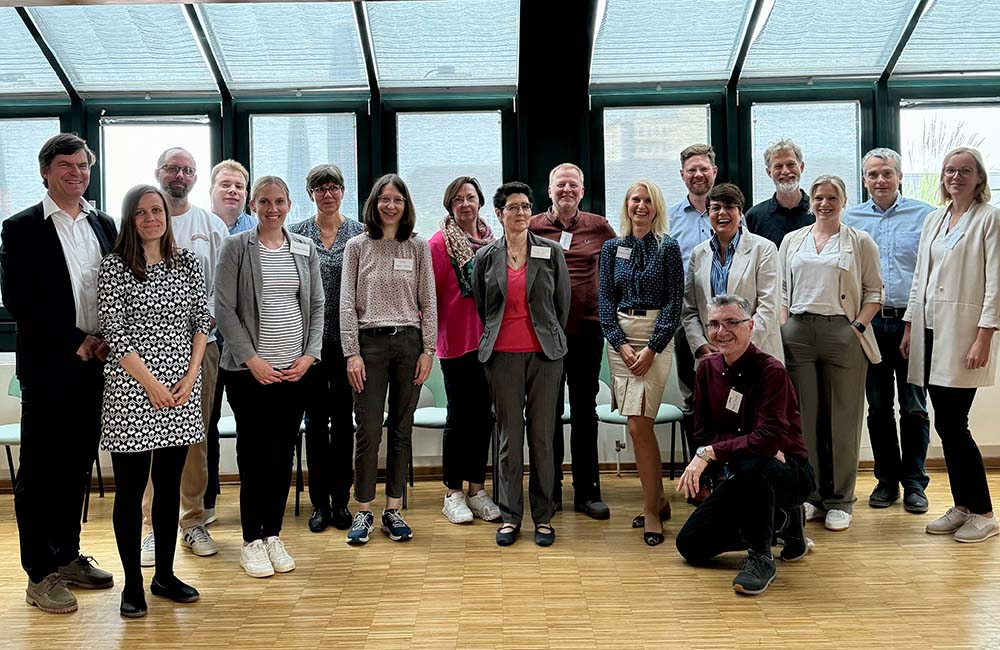High risk of heart and hearing problems after cancer in childhood and adolescence
Thanks to ever-improving treatment options, children and adolescents with cancer now have a good chance of recovery. Over 80 per cent of affected children can now be cured. But this is often not without consequences: Around two thirds of all those affected suffer from at least one disease- or therapy-related late effect in the course of their lives. Over the past four years, a research team led by the University Medical Centre Magdeburg has conducted a study, the only one of its kind in Germany, to investigate the aftercare and actual aftercare needs of children and adolescents after cancer in order to further improve the quality of life and performance of those affected.
Initial analyses of the study show that survivors have a significantly higher risk of cardiac and audiological diseases. Heart valve changes, diseases of the heart muscle (cardiomyopathies) as well as hearing impairment and even hearing loss often occur at a young and middle age. Further analyses will focus on psychiatric and metabolic diseases.
‘In the additional interviews with those affected and their relatives, we recognised the particular importance of the transition from paediatric to adult medicine. This allows us to derive recommendations for support in this difficult phase of life, which can be incorporated into the updating of aftercare guidelines,’ explains Prof Dr Dr Christian Apfelbacher, Director of the Institute of Social Medicine and Health Systems Research (ISMG) at Otto von Guericke University Magdeburg.
Targeted aftercare is crucial
Every year, around 1,800 children and adolescents are diagnosed with cancer, with the 5-year survival rate currently standing at around 85 per cent. ‘In view of this high survival rate, it is crucial to identify and minimise the health risks and burdens of these survivors at an early stage,’ emphasises Prof. Dr Enno Swart, head of the research consortium.
A central component of the study was analysing the use of medical check-ups recommended in guidelines. In addition, the experiences of survivors and their relatives with medical care and long-term aftercare were recorded in qualitative individual and group interviews.

Photo: Final event of the VersKiK project researchers at the Roncalli House in Magdeburg.
Photographer: Melina Niering
Extensive database for comprehensive analyses
The data basis for the study comprised around 27,000 survivors registered in the nationwide paediatric cancer registry at the University of Mainz, as well as data from 13 cooperating health insurance companies, which represent around 60 per cent of people with statutory health insurance in Germany. In total, over 100,000 anonymised study participants could be analysed by combining information from the cancer registry, the health insurance companies' billing data and a therapy database.
‘This novel methodological approach using three different data sources and linking them individually enables us to identify long-term health burdens caused by cancer and its treatment,’ explains Professor Swart.
In order to better meet the needs of this vulnerable group of people, the results of the VersKiK study are now being discussed in close cooperation with experts from aftercare centres, medical-scientific societies and statutory health insurance companies. The aim is to transfer the findings into care practice as quickly as possible and to improve the existing guidelines.
Project partners
German Childhood Cancer Registry (DKKR) of the Department of Epidemiology of Childhood Cancer at the Institute of Medical Biometry, Epidemiology and Informatics (IMBEI) of the University Medical Centre Mainz; Department of Paediatric and Adolescent Medicine, University Medical Centre Schleswig-Holstein, Campus Lübeck; Department of Paediatric Oncology and Haematology, University Medical Centre Bonn; PMV Research Group, University Medical Centre Cologne; Techniker Krankenkasse (TK); BARMER; DAK Gesundheit; Wissenschaftliches Institut der AOK (WIdO), Berlin; OFFIS e. V., Oldenburg
The ‘VersKiK’ project is being funded by the Innovation Committee of the Joint Federal Committee with approx. 2.3 million euros under the full title ‘Care, care requirements and care needs of people after cancer in childhood or adolescence’ (funding code 01VSF19013).
Scientific contacts
Study director:
- apl. Prof. Dr Enno Swart, Institute of Social Medicine and Health Systems Research (ISMG), Faculty of Medicine, Otto von Guericke University Magdeburg, phone: +49 391 6724306, email: enno.swart@med.ovgu.de
- Prof. Dr Dr Christian Apfelbacher, Director of the Institute of Social Medicine and Health Systems Research (ISMG) of the Medical Faculty of Otto von Guericke University Magdeburg, Mail: christian.apfelbacher@med.ovgu.de






